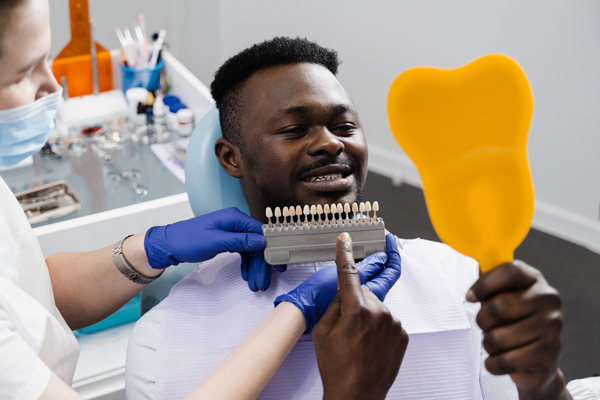5 Tips to Prevent Dental Cavities

Curious about how to prevent cavities? Continue reading to learn some tips on how to prevent tooth decay. According to the Centers for Disease Control, dental cavities affect one out of every four adults, and more than half of all teens in the United States have had a tooth filled. Oral health is often overlooked, although it is an important aspect of our overall well-being.
5 Tips for preventing cavities
Although brushing and flossing are two essential daily oral hygiene routines for keeping your teeth and gums healthy, there are a few more easy things you can do to minimize tooth decay and, worse, tooth loss. The following are some tips to prevent the occurrence of dental cavities:
1. Brush regularly and correctly
Brushing the teeth is one of the easiest yet most effective ways to prevent cavities because it reduces the incidence of bacteria and plaque. Brush the teeth after each meal and before sleeping at night. Nighttime brushing (especially after a late-night snack) is vital; otherwise, the bacteria will remain on the teeth and trigger enamel erosion, which eventually causes cavities.
2. Visit the dentist
Patients can take charge of their dental health by first knowing how prone they are to cavities. A complete dental check-up with a dentist can provide this information. They will know which treatments may be required and which modifications in dental hygiene and nutrition may be beneficial. Patients can then adopt a more targeted, effective strategy to improving their dental health once they are aware of their risk level.
3. Reduce sugar consumption
Bacteria rely on the sugar present in the mouth to grow and thrive, and humans aid this process by making sugars readily available to them. If a cup of coffee or tea in the morning is a must, try to finish it in less than 20 minutes and avoid adding more cream or sugar. It is also advisable to rinse the mouth afterward.
Using a straw also reduces how much the beverage touches the teeth. Sugary beverages are bad for the health and the teeth. It is always better to stick to drinking water instead.
4. Flossing is important
The gaps between the teeth are hard to reach, regardless of the effectiveness of the brushing technique. These narrow areas tend to trap food particles more. Flossing is important to eliminate anything trapped between the teeth and clean the areas that the brush cannot reach.
5. Quit smoking
One of the mouth's biggest enemies is smoking and chewing tobacco. Smoking causes tooth decay, gum disease, tooth loss, and oral cancer, in addition to staining your teeth. It is advisable to stop the habit as soon as possible before it causes significant damage.
Final note
No one expects ever to have to deal with dental cavities, discomfort, or infection. You should take your oral health seriously to safeguard your teeth and gums from decay and damage. Regular dental checkups, frequent brushing, flossing, and a low-sugar diet can all help you prevent cavities.
Request an appointment here: https://www.gatewaydental.org or call Gateway Dental Dr. William Swann DDS at (301) 485-7492 for an appointment in our Bowie office.
Check out what others are saying about our dental services on Yelp: Cavities in Bowie, MD.
Recent Posts
Choosing the right kids' dentist is one of the most important decisions you will make for your child's oral and overall health. This dental professional specializes in providing dental care tailored to the unique needs of young patients, fostering a positive experience with dental care from a young age. Working with an experienced pediatric dentist…
A dental veneer is a popular cosmetic dentistry solution designed to enhance the appearance of teeth by improving their shape, color, and alignment. Proper care and maintenance are essential to maintain a dental veneer's longevity and aesthetic appeal. Following a few practical steps, patients can ensure their veneers remain durable and beautiful for years.Good oral…
Dental bonding is a quick, affordable fix that dentists use to correct a wide variety of dental problems. Not only is dental bonding useful as a restoration, it also has cosmetic applications. The fact that bonding is easy to use makes it a popular option with dentists. This is how it works.Dental bonding takes the…
A family dentist provides comprehensive dental care for patients of all ages, making it convenient to address the oral health needs of everyone in the family. From preventive services for children to restorative and cosmetic treatments for adults, a family dentist ensures each family member enjoys a healthy, radiant smile. By focusing on personalized care…


